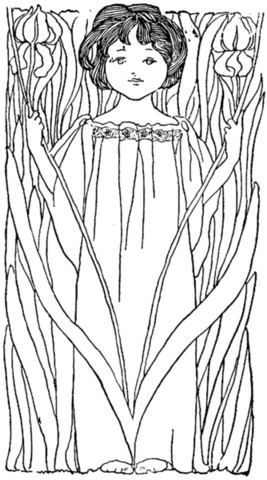Blog Post #11:
It
took over a half century for me to understand an obvious truth: other people
don't see me the way I see myself.
When
my granddaughter was nursing laryngitis, she commented on how strange her voice
sounded. I replied that she hears her own voice differently from others because
she hears it resonating from within her head, whereas others hear her voice
from without. How similar that is to the way we see ourselves. Others see us
differently and from without, while we see ourselves from a very personal place
within.
Not
long after the conversation with my granddaughter, I was visiting with an elderly
gentleman at church. In the course of conversation, he used words to describe
me that I would never think of using to describe myself. His generous appraisal
was humbling. I smiled inwardly at the thought, but found it difficult to
believe his view of me was correct, and mine was not.
This
brings me to another interesting observation: not only do I not see myself the
way others see me, but I also don’t see myself the way I really am.
When I walk by a mirror, I am always surprised by the image I see of myself. I never look the way I think I look. Why is that? I've seen myself in the mirror at least every morning and every night for over half a century, so why don't I know what I look like? I think it has to do with my perception of myself from within.
I
create mental models (often subconsciously) of who I think I am that contribute
to my impression of myself. For example, I see myself as a happy person. At a
very young age, I decided a smile should be my “normal” expression. (Of course,
there was the time I was making jam, and burnt the bottom out of a 2-quart plastic
pitcher full of granulated sugar when I inadvertently turned on the wrong stove
burner. No, I was not smiling when eight cups of sugar poured out the
burnt bottom like a glittering white Niagara Falls all over the stove and floor, but this is beside the point.)
There
was a reason for the smile decision. I had noticed people who, unprovoked, looked as if they had a thorn in their shoe. Others wore a perpetual scowl,
while a few looked as if they’d like to bite someone’s head off. (I am not referring to friends or family--just people I'd sometimes meet.) I wanted to
see happy faces, and I wanted others to see happiness in me. I knew that when
people greeted me with a smile, it set me at ease and lifted my spirits without speaking a word. (I’m not talking about pasted-on TV smiles—insincere and
shallow,—but kind and reassuring smiles.)
So, I try to maintain a cheerful attitude,
and a positive outlook. I believe that I'm a cheerful person, most of the time.
Or am I? Do I really appear cheerful to others, or am I fooling myself?
One
day, many years ago, my brother said to me, "Cynthia, you are such a
complainer." I was taken aback….completely shaken. A complainer?! Is that how you see me? I began the arduous
and painful task of self-analysis. I noticed
that I did complain from time to time. Indeed, I was a complainer! That
began a struggle to end the complaining that, unfortunately, continues today.
Like a prizefighter, I have bouts of success suppressing individual urges to
grumble as they bob and weave in and out of everyday situations.
Every now and
then, a family member will act as referee when I go down for the count, and
every single time it comes as a surprise! Was I complaining again? How can I repeatedly
be so blind to my own behavior? I must conclude that to family members I am (sometimes,
at least) seen as a whiny-fuss, which doesn't fit my self-image at all, for I
am a cheerful, happy person—truly content.
Another
example of this conundrum is the question of introversion versus extroversion. Surprising to me are friends who are
surprised to hear that I am an introvert. The minute I walk into a large
gathering, I become a worker bee, busying myself to avoid having to stop and
find a place in the hive. If there’s no frantic buzzing to be done, I may find a
flower or two whose nectar I already know to be sweet, and comfort myself in
their presence. I prefer quiet family gatherings to social calls, I dread and procrastinate
making phone calls, and I flee large gatherings in which mingling is expected.
The
contradiction: I love being with people. I want to know all about them. I love
hearing about their fascinating lives, about what they think, and how they feel.
I love to connect with people. However, I prefer being with, knowing about,
hearing from, and connecting with people one-on-one.
I even prefer to skip the introductory appetizers and salads—the small talk—and
cut right into the main dish, where the meaty juiciness and flavor is.
These
kinds of incongruities raise disconcerting questions: Is what people see a true
representation of what is at my core? And worse: Am I a fake and a fraud?
Am
I a fraud if I profess love for others while preferring the quiet security of
being the proverbial fly on the wall, or feeling uncomfortable in the wake of large
social events? Am I a fake if my mental model is happiness and good cheer, but
sometimes exhibit whiney-fuss tendencies?
I
believe I am cheerful, but there are those who perceive me as a complainer. I
consider myself an introvert and somewhat clumsy at social interaction, and there
are those who see me as extroverted. Examples of these kinds of paradoxes are
many and varied. I would venture to guess that if I made an illustration of how
I see myself and a group of family and friends collectively made an
illustration of how I am seen, the results would be two entirely different
pictures!*
"For
now we see through a glass, darkly, but then face to face: now I know in part,
but then shall I know even as also I am known." (1 Corinthians 13:12) I have
pondered this scriptural passage, and have discussed its layers of meaning and
application with family members and friends. It appears in the thirteenth
chapter of 1 Corinthians at the end of a description of charity—that quality of
character, that pure love—that Christ embodied and exemplified, and that is at
the pinnacle of His teachings, for without it, He tells us, we are nothing.
 |
| Christ by Karen C. Kindrick Cox |
Perhaps
I am a fake and a fraud, but I don’t think so. I think it is a matter of
perception, which is often flawed. I think there is some kind of middle ground
on which I’m standing—the middle ground of Intent and Faith. If I stand there,
then I must allow that others stand there, as well, even if I can’t see them with my limited vision.
“Now we see through a glass, darkly.” I cannot
now clearly see what I am, or how others perceive me. I cannot clearly see the
results of my efforts, or my influence for good or bad. I cannot clearly see my
true relationship with others.
But
“then, we will see face to face.” “Then,”
to me, refers to when I return Home to God who gave me life. Then, shadows of misunderstanding will disperse.
I will see without clouded glass, without blurry, dark and tainted perceptions.
I will see clearly, distinctly and thoroughly. I will see and understand all
the thinking and feelings (my own, and those of others) that have influenced
my choices and judgments—both good and bad. All the facades, fears and foibles
that have prevented me from understanding the truth as it really is will
dissipate. I will see truth in its glory, and will understand and know without
falseness that blinds, sharpness that mars, or vague shadows and doubts. Now, I only know tiny particles of all
the truth around me because of the limitations imposed by my experiences,
biases and environment, by traditions and narrow histories, by physicality and
mortality.
But
“then, I shall know even as I am also known.” Then, I will understand.
Then, what I am is what you will
see, and what I see is what is true in you.
I
look forward to that perfect day.
© Copyright July 1, 2014
*After I wrote the first draft of
this post, I discovered a wonderful little video (only 3 minutes long) about this
very thing. Please click this link to watch the Dove Real Beauty Sketches video.
Tweet

















Beautiful, my smiling, cheerful, introverted, non-complaining friend!
ReplyDeleteMonica, you always make me feel loved. I so appreciate your faithful friendship and your faithful reading of my little blog. You bless my life in so many ways. Thank you.
DeleteLove, love, love your blog! Every time I read I seem to find something that touches the heart in me. Thank you for all your wonderful posts!!
ReplyDeleteThank you, Nicole!
Delete